Introduction
Understanding the impact of probiotics and prebiotics on gut health is key to enhancing overall well-being. Probiotics are beneficial live microorganisms, often found in fermented foods like yogurt and kimchi, that help maintain a healthy balance of gut bacteria. In contrast, prebiotics are non-digestible fibers that serve as nourishment for these probiotics, promoting their growth and activity.
Gut health plays a crucial role in digestion, nutrient absorption, and immune function. A balanced gut microbiome supports mental health and may aid in managing conditions such as irritable bowel syndrome (IBS).
This article explores the best foods rich in probiotics and prebiotics to boost your gut health. You will discover practical insights to incorporate into your daily diet for a healthier gut:
- Identifying these essential components
- Exploring their benefits
- Understanding dietary recommendations
Incorporating probiotic-rich foods like yogurt or kimchi can significantly improve your gut health. However, it’s also important to include prebiotic foods such as garlic, which not only nourishes the beneficial bacteria in your gut but also offers additional health benefits including cardiovascular support.
Furthermore, maintaining an active lifestyle can enhance the effectiveness of these dietary changes. Regular physical activity, such as kickboxing, can improve overall health and well-being.
To illustrate the importance of these dietary changes, consider this photograph which symbolizes the journey towards better health through mindful eating and lifestyle choices.
Understanding Probiotics and Prebiotics
What are Probiotics?
Probiotics are live microorganisms, often referred to as good bacteria, that offer numerous health benefits when consumed. These beneficial microbes are predominantly found in various fermented foods such as:
- Yogurt
- Sauerkraut
- Kefir
- Kimchi
- Miso
- Aged cheeses
You can also find probiotic supplements that provide these beneficial bacteria in concentrated forms.
How Do Probiotics Function in the Gut?
The primary role of probiotics is to maintain a healthy balance within the gut microbiota. By populating the gut with beneficial bacteria, they help outcompete harmful strains, improving overall gut health. Probiotics aid digestion, enhance nutrient absorption, and strengthen immune responses. They can also be pivotal in managing digestive disorders like irritable bowel syndrome (IBS) and reducing symptoms of antibiotic-related diarrhea.
In addition to these benefits, probiotics also play a significant role in natural immune support, helping to fortify the body’s defenses against various ailments.
What are Prebiotics?
Unlike probiotics, prebiotics are non-digestible fibers that serve as nourishment for probiotics and other beneficial gut bacteria. These fibers pass through the upper part of the gastrointestinal tract undigested and reach the colon, where they facilitate the growth of good bacteria.
How Do Prebiotics Support Probiotic Growth?
Prebiotics work by stimulating the activity and proliferation of beneficial bacteria already present in the gut. When these fibers are fermented by gut microbes, they produce short-chain fatty acids such as acetate, propionate, and butyrate. These fatty acids provide energy to colon cells and contribute to maintaining a healthy intestinal environment.
Sources of Prebiotics
Several everyday foods offer rich sources of prebiotics:
- Chicory root
- Garlic
- Onions
- Leeks
- Asparagus
- Bananas
- Apples
- Whole grains
Incorporating both probiotics and prebiotics into your diet can create a synergistic effect, ensuring a robust gut flora that supports not only digestive health but also overall well-being. For instance, you might consider combining certain foods with probiotic-rich products for maximum benefit.
Benefits of Probiotics and Prebiotics for Gut Health
Probiotics play a vital role in maintaining the balance of your gut microbiota. This balance is crucial for optimal digestive health and immune function. By populating your gut with beneficial bacteria, probiotics help prevent the overgrowth of harmful strains. This microbial harmony aids in better digestion and enhances nutrient absorption, ensuring your body gets the most from the food you eat.
Probiotic Benefits
- Probiotics have shown promise in managing gastrointestinal conditions like irritable bowel syndrome (IBS). They can alleviate symptoms such as bloating, gas, and irregular bowel movements.
- Additionally, probiotics may offer mental health benefits, potentially improving symptoms of depression by influencing the gut-brain axis, a complex communication network linking your gut and brain. In fact, a recent survey revealed that a staggering 77% of us experience election anxiety, highlighting the need for effective mental health management strategies1.
- When it comes to addressing antibiotic-related diarrhea, probiotics have been effective in reducing its occurrence. Antibiotics can disrupt the natural balance of gut flora, but introducing probiotics can help restore this equilibrium and mitigate side effects.
Prebiotic Benefits
Prebiotics work by enhancing the growth of these beneficial gut bacteria. As non-digestible fibers, they act as nourishment for probiotics. When consumed, prebiotics facilitate the production of short-chain fatty acids (SCFAs), which are absorbed into the bloodstream and provide several health benefits. SCFAs help nourish colon cells, reduce inflammation, and potentially lower the risk of certain diseases.
The contribution of prebiotics to overall digestive health cannot be understated. By promoting a healthy environment for probiotic bacteria to thrive, they ensure a robust gut microbiome that supports not only digestion but also various other bodily functions. Including both probiotics and prebiotics in your diet creates a comprehensive approach to maintaining a balanced and healthy digestive system.
Moreover, it’s worth noting that some people seek additional methods to enhance their well-being beyond just dietary changes. For instance, energy-boosting supplements or slimming teas for diet might be beneficial for those looking to improve their overall health or manage their weight alongside incorporating probiotics and prebiotics into their diet. Additionally, practices such as using an aromatherapy diffuser can also contribute positively to one’s mental health and well-being.
The Synergy Between Probiotics and Prebiotics: Synbiotic Foods for Optimal Gut Health
Exploring the synbiotics concept opens up new avenues for enhancing gut health. Synbiotics are a combination of probiotics and prebiotics that work together to amplify their individual benefits. This partnership is crucial because, while probiotics introduce beneficial bacteria into the gut, prebiotics provide the essential nourishment these microbes need to thrive.
Why Combine Probiotics and Prebiotics?
Combining both probiotics and prebiotics foods for gut health offers enhanced benefits:
- Probiotics benefit from an environment rich in prebiotic fibers, allowing them to colonize more effectively within the digestive system.
- This synergy supports improved digestion, nutrient absorption, and a robust immune response.
Examples of Synbiotic Foods
Several foods naturally integrate both elements, making them excellent examples of synbiotic foods:
- Yogurt with bananas: Yogurt provides probiotics, while bananas offer prebiotic fiber.
- Kefir with whole grains: Kefir is a probiotic-rich beverage that pairs well with fiber-rich grains.
- Miso soup with onions: The fermentation process in miso contributes to probiotics, while onions add the necessary prebiotic components.
These combinations can be easily incorporated into your diet to harness the benefits of synbiotics. Embracing such foods can lead to a more balanced gut microbiome, promoting overall digestive wellness and supporting other bodily functions.
Supporting Gut Health Beyond Diet
In addition to diet, maintaining overall health through supplements can also be beneficial. For women, premium multivitamins designed to meet unique nutritional needs can play a significant role in health. These multivitamins are non-GMO, gluten-free, and vegan, providing essential nutrients that support various bodily functions.
Moreover, lifestyle factors such as engaging in high-intensity interval training can further enhance gut health by promoting better digestion and nutrient absorption.
Lastly, incorporating certain beauty supplements may also support overall well-being by nourishing the body from within.
Dietary Recommendations for Incorporating Probiotic and Prebiotic Foods into Your Daily Diet
A balanced diet rich in fruits and vegetables provides an excellent foundation for gut health. To effectively incorporate probiotics and prebiotics, consider the following food groups:
Probiotic-rich foods
Yogurt, kefir, kimchi, sauerkraut, miso, tempeh, and aged cheeses.
Prebiotic-rich foods
Chicory root, garlic, onions, leeks, asparagus, bananas, apples, and whole grains.
To boost your gut health through meal planning:
- Start your day with a breakfast of yogurt topped with bananas and a sprinkle of oats.
- Enjoy a lunch salad incorporating mixed greens with onion slices and asparagus spears.
- Enhance dinner with a serving of miso soup or a side of kimchi.
- Snack on apple slices paired with cheese or enjoy a probiotic-rich smoothie.
By integrating these foods into your meals consistently, you support a thriving gut microbiome essential for optimal wellness.
For those looking to further enhance their health journey, incorporating supplements like Vitamin D3 can provide additional support for immune function and bone health.
In addition to dietary changes, easy meal prep can make it more convenient to maintain a balanced diet. And for those who are fitness enthusiasts seeking Amazon fitness gear, there are plenty of options available to help you stay active.
Research Insights on Probiotic and Prebiotic Foods for Gut Health
Recent studies highlight the expanding role of probiotics and prebiotics beyond just digestive health. Emerging research on health benefits suggests that these components may play a significant role in various systemic conditions:
- Immune System Support: Probiotics have been linked to enhanced immune responses, potentially reducing the incidence of respiratory infections.
- Mental Health: Probiotics, sometimes referred to as “psychobiotics,” are being studied for their effects on mental health disorders, including depression and anxiety. The gut-brain axis is a focal point in understanding these relationships.
- Weight Management: Some evidence indicates that prebiotics may aid in weight management by influencing hormones related to appetite control.
- Metabolic Health: Both probiotics and prebiotics may contribute to improved metabolic profiles, showing promise in managing conditions like type 2 diabetes and obesity.
These insights emphasize the diverse benefits of incorporating probiotics and prebiotics into your diet, encouraging ongoing research into their potential impacts on overall health. For those interested in exploring further into health tips or even looking for specific products like single-use soap, there are numerous resources available. Additionally, if you’re considering nighttime driving accessories, it’s worth checking out some options.
Safety Considerations When Consuming Probiotic and Prebiotic Foods
When it comes to including probiotics and prebiotics in your diet, safety is a key consideration. For healthy adults, these foods are generally deemed safe and can be consumed as part of a balanced diet. Fermented foods like yogurt and kimchi provide probiotics naturally, while items such as garlic and onions offer prebiotic benefits.
However, before diving into supplements or making significant dietary changes, it’s crucial to consult healthcare providers. This step ensures that any underlying health conditions or potential medication interactions are considered. Starting with small amounts of probiotic-rich or prebiotic-rich foods can help gauge individual tolerance levels, minimizing digestive discomfort.
Healthcare professionals can provide personalized advice tailored to your unique health needs, ensuring that the integration of these foods supports rather than disrupts your wellness journey.
Conclusion: Embrace the Power of Probiotic and Prebiotic Foods for a Healthier Gut!
Improving your gut health through diet can be as easy as adding probiotic and prebiotic foods to your daily meals. Here are some simple ways to do it:
- Incorporate fermented foods like yogurt, kefir, and kimchi into your diet for their probiotic benefits.
- Include prebiotic-rich options such as chicory root, garlic, and whole grains in your meals.
By combining these foods, you can create a balanced environment in your gut that supports digestion and overall well-being. Remember, making these small changes and consistently including these foods in your routine can have a significant impact on maintaining a healthy gut microbiome.


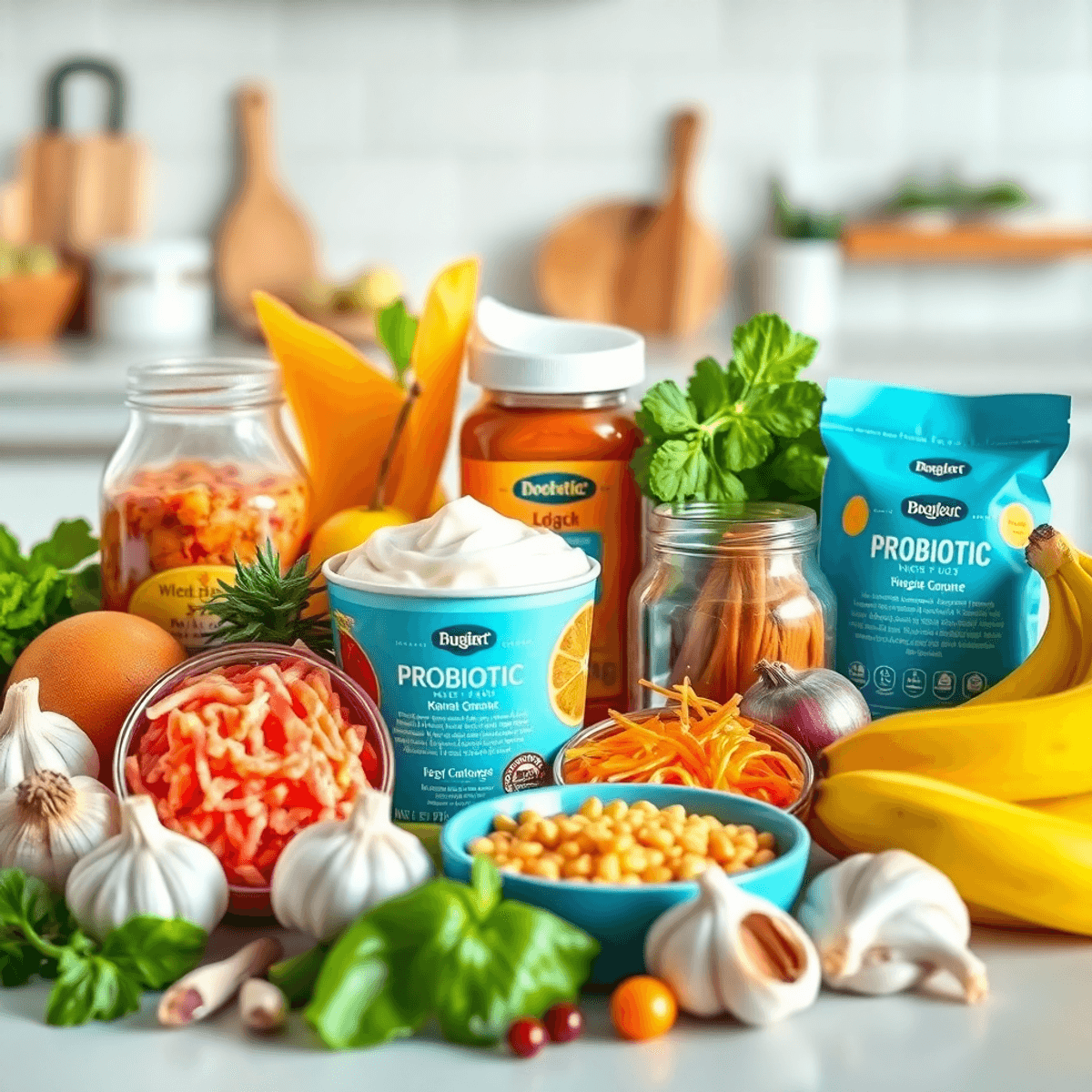

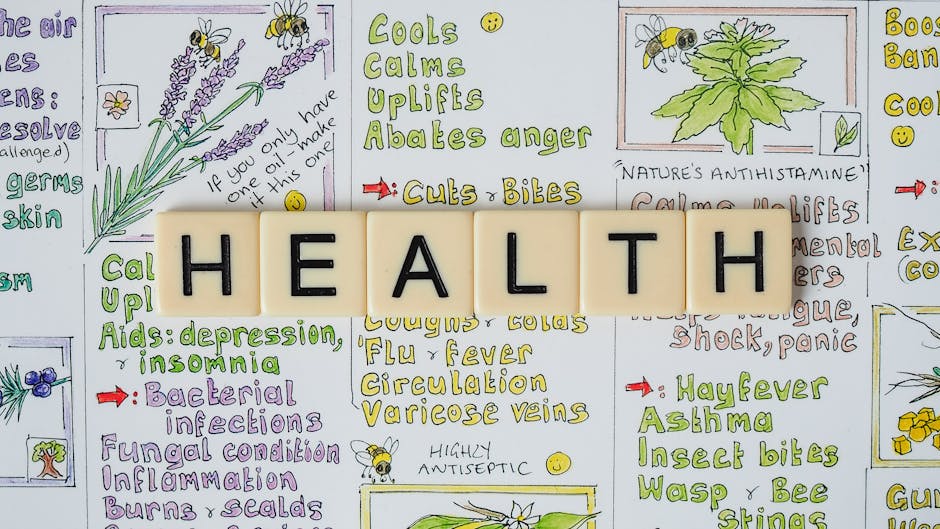


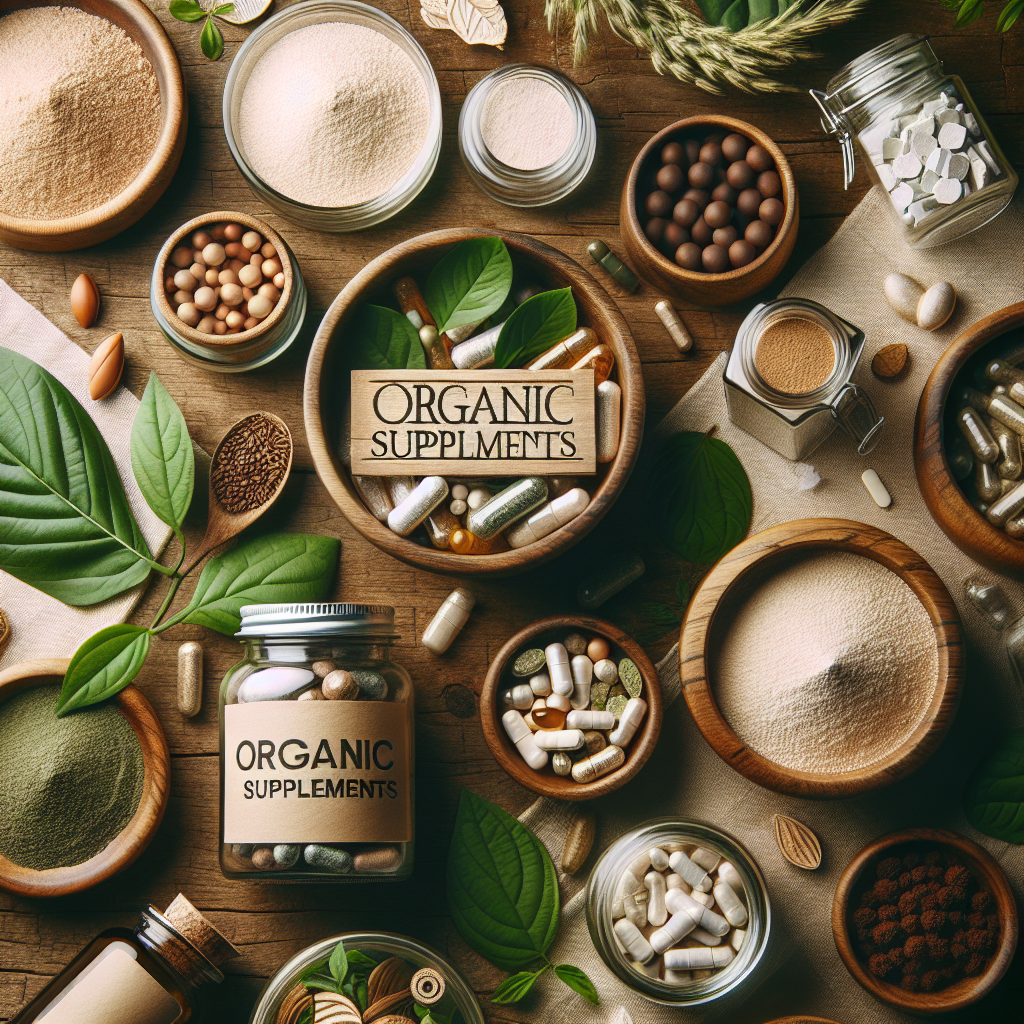


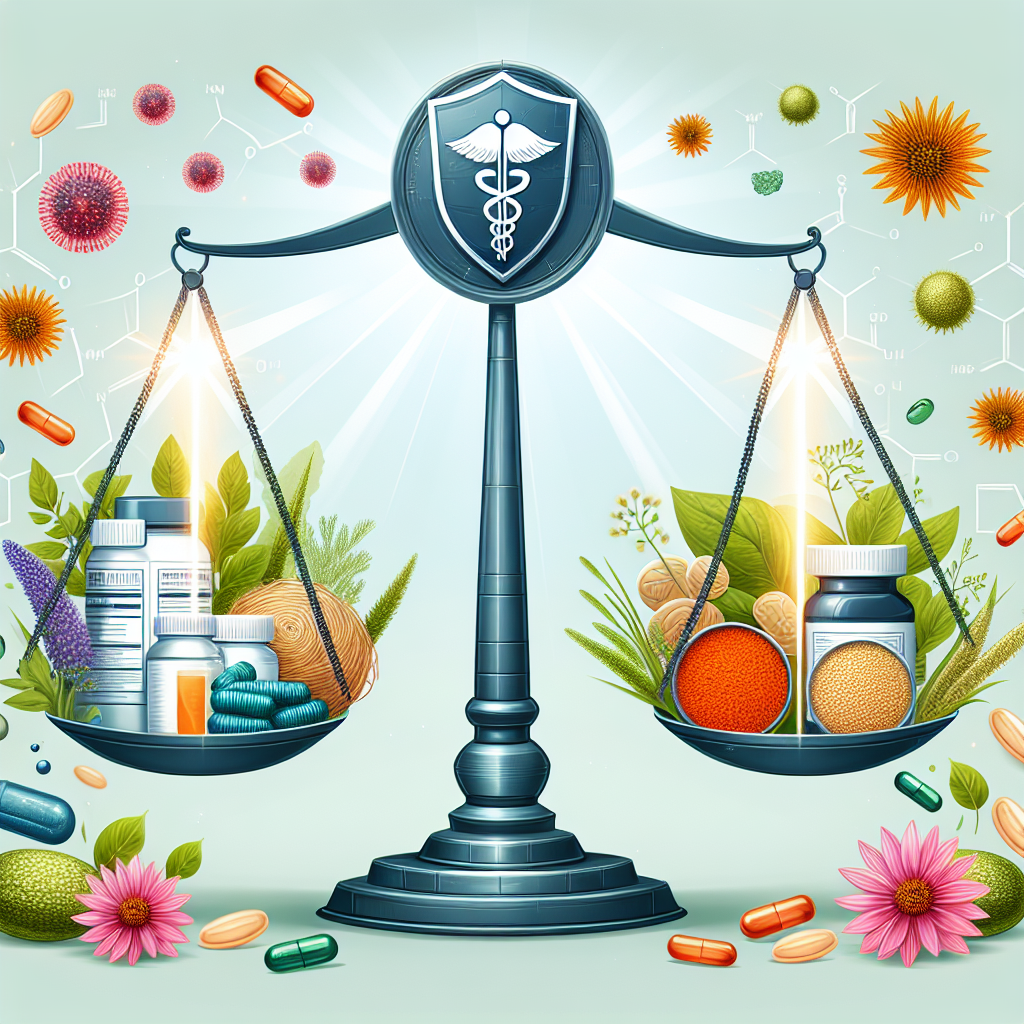
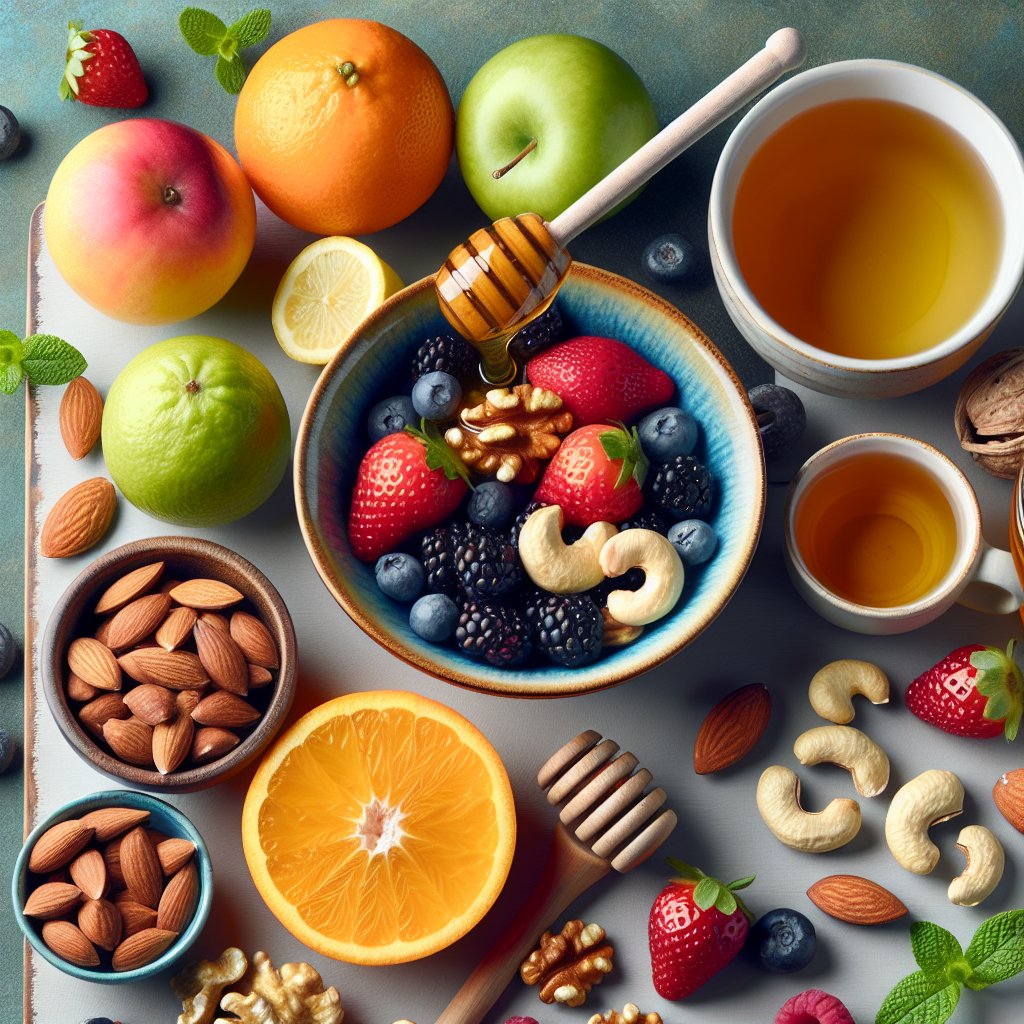
Probiotics and prebiotics are very important for gut health, but people often forget that it’s also crucial to eat a variety of foods. Including garlic and bananas can help support those good bacteria to thrive in your digestive system.
Probiotics and prebiotics are verry important for good gut health, I read that they help with digestion and immune function. Foods like yogurt and garlic can really boost your microbiome. It’s key to a healthy life.